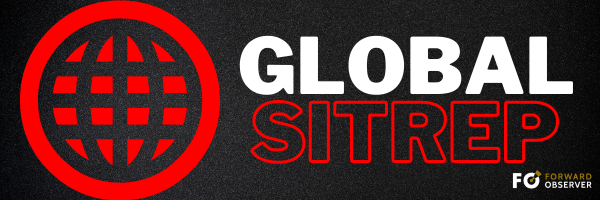Good morning, and welcome to the Global Situation Report for Thursday, 18 April 2024.
- ISRAEL, IRAN CONTINUE WAR OF WORDS IN ANTICIPATION OF NEW STRIKES: Israeli officials have promised retribution for last weekend’s missile and drone attack from Iran, but that action is not expected until after Passover, which runs from 24-30 April.
- Meanwhile, Iranian officials continue to warn Israel not to strike Iranian territory. A senior Iranian Revolutionary Guards Corps (IRGC) officer also said that Iran could review its “nuclear doctrine” in light of an anticipated Israeli attack.
- European and Arab leaders are also warning of the risk of a broader war. “We are on the edge of regional war in the Middle East,” European Union foreign policy chief Josep Borrell said.
Why It Matters: Arab leaders from Saudi Arabia, Iraq, Jordan, Egypt, and Qatar, have engaged in a massive amount of diplomatic discussions to prevent regional escalation. War is in neither side’s best interests, and the Israelis have said their retaliation would not risk igniting a military conflict with Iran. I don’t think a conventional war between Israel and Iran is likely, but it certainly is the most dangerous scenario. – M.S.
- AUSTRALIA READIES FOR WAR WITH CHINA: According to Australia’s first-ever National Defence Strategy, “Australia no longer enjoys the benefit of a ten-year window of strategic warning time for conflict.”
- Investment priorities include sea denial, hardened northern bases, undersea warfare, theater logistics, amphibious Army operations, expeditionary air capabilities, and more. The defense budget is set to double over the course of the next 10 years.
Why It Matters: China is now facing a military alliance of the United States, Japan, Australia, and the Philippines. China’s most likely course of action remains avoiding a conventional military conflict while ramping up gray zone warfare, including economic warfare, to undermine the alliance’s ability to make war. – J.V.
- U.S. SUCCESSFUL IN EXPLOITING RUSSIA-ARMENIA SPLIT: Russian diplomats said they expect a clarification over Armenia’s growing relationship with the United States and European Union.
- “Both Washington and Brussels are clearly seeking to cut all ties between Armenia and Russia, particularly in the field of security and economy, as well as to undermine the mechanisms of regional security and economic partnership that are based on the Collective Security Treaty Organization,” Russian foreign ministry spokeswoman Maria Zakharova said.
- In a meeting earlier this month, the European Union pledged over 270 million euros, equivalent to $288 million dollars, to Armenia over the next four years.
Why It Matters: Long-time Global SITREP readers will remember Armenia’s displeasure with Russia and the Collective Security Treaty Organization (CSTO) after neither intervened in the border war with Azerbaijan. Armenia publicly threatened to quit the CSTO – Russia’s South Caucasus and Central Asian equivalent to NATO – and repeatedly criticized Russia for not coming to its aid. Enter the United States which last year started mediating the conflict and courting improved relations. Armenia is not the only South Caucasus and Central Asian target for U.S. influence, but it appears to be the most successful interruption of Russian relations so far. For their part, the Russians have warned that Western money is only fueling another geopolitical battleground and risking another regional war. – M.S.
- Global Rollup
- NASA Chief Bill Nelson testified to Congress that he believes many of China’s civilian space programs are actually military in nature.
- U.K. Security Minister Tom Tugenhadt testified to the House of Commons that the Chinese can turn electric vehicles into mobile intelligence and surveillance platforms.
- The Philippines and New Zealand are set to elevate their relationship to a “comprehensive partnership” starting in 2026 and will sign a Mutual Logistics Supporting Arrangement (MLSA) and Status of Visiting Forces Agreement by the end of this year.
- Iran’s ambassador to Russia boasted that his country is the Middle East’s most advanced and that Iran is willing to share science and technology with other members of the Shanghai Cooperation Organization (SCO): China, India, Kazakhstan, Kyrgyzstan, Pakistan, Russia, Tajikistan, and Uzbekistan.
- Dutch Prime Minister Mark Rutte offered to purchase Patriot air defense systems from the United States and provide them to Ukraine if other NATO members aren’t willing to. According to reports, Rutte is the leading candidate to become the next NATO secretary general.
THAT’S A WRAP: This does it for today’s edition. Thank you for reading. If you know folks who would also like to receive this email, would you please forward it to them? We appreciate you spreading the word. – M.S.

